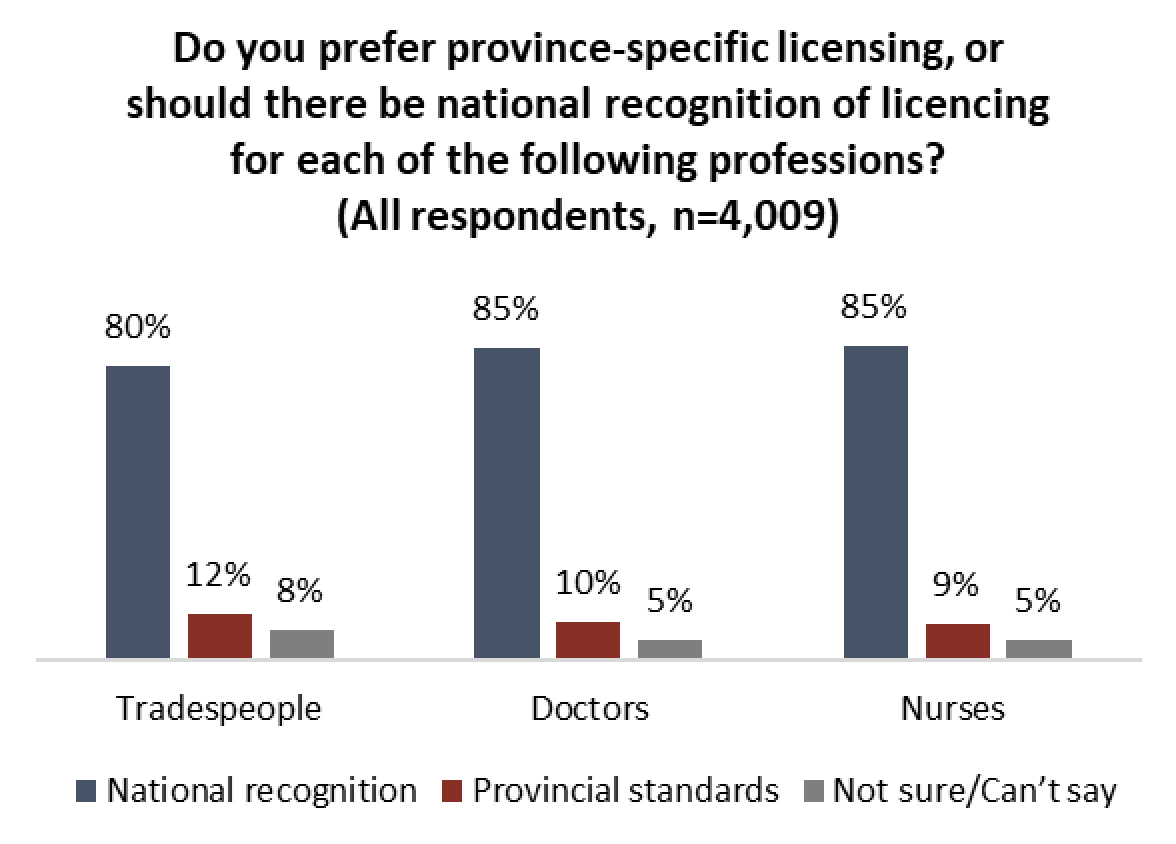ONTARIO – One of the talking points in Canada’s response to American tariff threats hinges on removing so-called “interprovincial trade barriers.”
Removing these barriers is an idea almost universally supported by Canadians and gaining traction in the public discourse.
New data from the non-profit Angus Reid Institute finds Canadians largely say these regulatory and certification requirements infringe on labour mobility and competition that would otherwise benefit their own province.
Free movement of alcohol, access to purchasing auto-insurance from anywhere in the country, and recognition of credentials for doctors, nurses, and tradespeople are overwhelmingly supported.
But supply management regulations draw mixed support and opposition, as does the idea of opening up government procurement to a broader swath of competition that might hurt companies closer to home.
Canadians hold competing views of trade barriers and protectionism, and some economists say removing them would boost Canada’s GDP significantly, while others disagree.
“Mutual recognition” is something most support, under which all provinces would recognize the others’ standards for goods, services, and professional licenses.
Fewer than one-in-five (17 per cent) worry about the weakening of standards this may create, while two-thirds (68%) support the idea.



